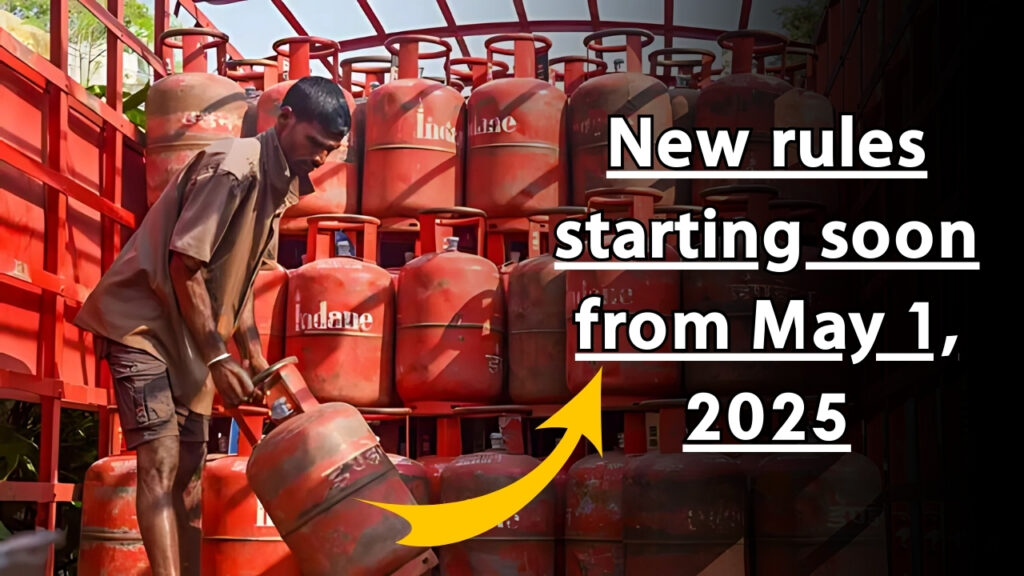Offline Certificate : In a major administrative reforms that will simplify the life of almost every household in the state, the Government of Haryana has now redefined it’s offline certificate delivery system.
Applicable in all 22 districts, the new rules will alter the way residents get domicile, income, caste and property certificates. The changes were designed to make relay of information more efficient as well to alleviate what has been a long-simmering issue over the authenticity of the documents, and the exploitation and corruption of middlemen.
For residents of Haryana, all the more those in the hinterland who lack easy physical access to digital content, it is important to know these new processes, because there will be no escape from these new verification measures – and the delay they cause – when trying to get documents required for education, jobs, welfare schemes and property deals.
In a sign that even amid India’s push for e-governance in recent years, these offline certificate reforms recognize the persistence of physical documentation for large segments of the population.
Table of Contents
Important off-line certificate system changes

The new design adds a number of core design changes for the work flow for issuing certificates:
CAC Commissioned: On the other hand, government has formed 125 dedicated Certificate Application Centers (CACs) across the state in place of the earlier practice of submission of applications at various locations including tehsil, sub-division and DC offices. All applications for any type of certificate will be processed by each center, following a single-window approach.
Standardized Documentation: Inconsistencies with a range of given requirements have been resolved, and now all types of certificates have clear checklists to follow. For instance domicile have been standardized to be granted/issued on the basis of proof of residence (electricity bills/rental agreements of prescribed period) proof of identity & one application form.
Commitment to fixed timeline: Each type of certificate now has a guaranteed processing timeline:
Domicile certificates: 15 working days (down from the previously unspecified time)
Income certificates – 10 days working.
Caste certificates Calling time: 21 working days (as it requires verification)
Certificates of property: 30 business days
New Verification Methods: New enhanced security methods implemented include; three-level verification tiers with:
-
1st Stage Document Verification at the time of Application
-
Field verification by nominated officers (specifically for caste and income certificates).
-
Endorsing via a digital signature system with audit trails
Revised Application Fee Structure: Uniform application fee with slight increase:
The following has been revised with respect to General certificates: Earlier it was:₹50 -100 Depending upon the place_SCANCODE (SC), NOTTIX, TELANGANA (Intermediate General Provisional) :₹ 100
-
Priority processing (applicable for some certificate categories): Extra ₹150
-
to be home delivered (new service): additional ₹ 50
Ramesh Sharma, a retired government school teacher from Karnal, shared his recent experience: “Last year, I had to get an income certificate made and was made to run from pillar to post between three offices and ultimately I paid an agent ₹500 to get the work done.
Last week I applied under the new system for domicile certificate for my grandson’s admission. It was surprisingly easy — a single place, clear instructions, and I even got an SMS when it was ready to pick up.”
Offline Certificate How the New System Works: Step by Step (1)
The updated process favors a methodical path intended to peel away confusion and limit disretionary decision-making:
Step 1: Submission of the Application The applicant will go to the CAC of his district or tehsil along with complete documentation. Most of the application forms which were 3- 4 pages were reduced to one standard page. Centers are open from 0900 to 1600 on working days and a few district headquarters centers operate on Saturdays (0900 to 1300).
Step 2: Initial Verification and Receipt Counter Document completeness is ensured and a computer-generated receipt is provided with a unique tracking ID by the officials present at the counter.
That receipt would mention the exact date by which the certificate would be ready (that was calculated based on the processing timelines for that particular certificate type).
Stage 3: Background check Wherever required verifications (majorly for caste, income, and select property documents), the respective field officers conduct field verification and report back on a mobile app newly developed by the government that captures GPS coordinates as well as timestamps of the verification.
Step 4: Issue of Certificate Verifying officials examine the verification reports and sanction, reject the applications with reasons for rejection or sanction only in special cases. Approved certificates are produced with additional security elements: QR codes, holographic overlays, and unique serial numbers.
Step 5: Dispatch/Collections Depending on the preference of applicants;
Issuance Centre (on presentation of the collection receipt)
Home delivery for extra charge
Pick up at one of 235 new service centers built near residential neighbourhoods
Sunita Devi, the sarpanch of Mandkola village in Palwal district, describes how the changes are impacting its rural residents: “The time limits are making a big difference.
Before, residents wasted days going back and forth to government offices. Now they can mark their calendars. Yet the travel to these centers, even for elderly villagers, remains the challenge, though some families have been eased by home deliveries.
Offline Certificate Other Special Cases and Exceptions
The new system includes multiple provisions to account for special cases and vulnerable populations:
Emergency Certificates:There is a priority basis for those who have to submit for due to death, admission fixed date or abroad. This requires extra proof of urgency and an extra fee, but ensures certificates of the right types can be processed in 3 working days.
SC/ST and Persons with Disability (PWD) Applicants: Special counters are earmarked at the CACs for applicants belonging to SC/ST and PWD categories. Mobile teams can also be called upon for card delivery and home visit for document capture, However this visit needs to be scheduled at least a week in advance.
Digital Assistance Booths: Knowing that some applicants may not be familiar with standardized forms, each center has digital assistance booths which members of staff use to assist applicants prepare their forms properly. These assistants may not charge more than official rates are posted boldly in all places.
Camps for rural outreach: And to those villages that are situated 20 KM away from towns, once in a month, administration shall provide a camp where any application can be submitted and certain certificates (mostly domicile and income) downloaded on the same day after verification.
Prakash Chand, who manages the CAC in Hisar, says, “We are getting around 200-250 applications a day at our centre. The problems we encounter most often are missing documentation and applicants showing up without the required self-attestation on photocopies.
We have put up pictorial guides in both Hindi and English which will help people know what papers they will need with respect to each certificate.
Offline Certificate Implementing Challenges and Field Realities
However, despite the methodical development of the plan, the rollout has faced a number of challenges which illuminate the divide between policy design and implementation.
Infrastructure Challenges: Several of the smaller centers have complained of poor computer systems, lack of printers and network issues leading to delays despite the new timelines. Now, the agency has responded to these fears by revealing that it will be upgrading its technology systems in stages and will be entirely updated within three months.
Staffing Transitions At The Implementation Site: The shift of staff to centralized centers resulted in preliminary expertise gaps, due to the fact staff required added instruction on the new procedures and verification protocol. In this “transitional period,” processing currently has been taking a little longer.
Public Awareness Lacuna: Although urbanites have by and large adapted swiftly to the new system, awareness is low in hinterlands. Local authorities say people are still going to conventional offices or hiring agents even though the process has been simplified.
Document Requirements: Older property records, hand written school certificates, legacy documentation may not adhere to the standards making it cumbersome and difficult for the applicants who are in possession of older supporting documents.
Vikram Singh, the District Administration Officer for Ambala, concedes: “We are in the midst of a transition and there are certain teething problems. We have set up an exclusive number (0172-258-xxxx) to address queries and complaints.
The biggest problem has been the lack of clear guidelines regarding what kind of supporting documents will be accepted, particularly for elderly people whose records may be written in older formats.”
Offline Certificate Future Additions And Add-Ons
These latest developments mark Phase I of a broader reform program, and there are multiple new features in the works, set to launch over the next several months:
DigiLocker integration: From the middle of the year, all new certificates will be auto-uploaded to the applicants’ accounts on DigiLocker if they provide their Aadhaar details so that there is a safety net, which is always recommended.
Multilingual Support: The application form and information materials now available in Hindi, Punjabi, and English, as per requirements of large populations in recognized districts.
Mobile App Launch: A mobile application for status checking and issuance of certificate is being developed and will take some time but it will not affect the validity of physical certificates for all official purposes.
Renewal of Periodic Validity For expiring certificates, a streamlined renewal procedure was in the works that would involve minimal documentation if the underlying situation had not changed.
For the people of Haryana adapting to these changes, the apparatus is a radical departure from what they’re used to. Although they are hoped to make bureaucracy more efficient and reduce corruption, the success of these reforms will depend on the sustained use, reliability of the technology and political will of the government to process the inevitable edge-cases (or exceptions) which crop up in the administrative ecosystem of this size.










